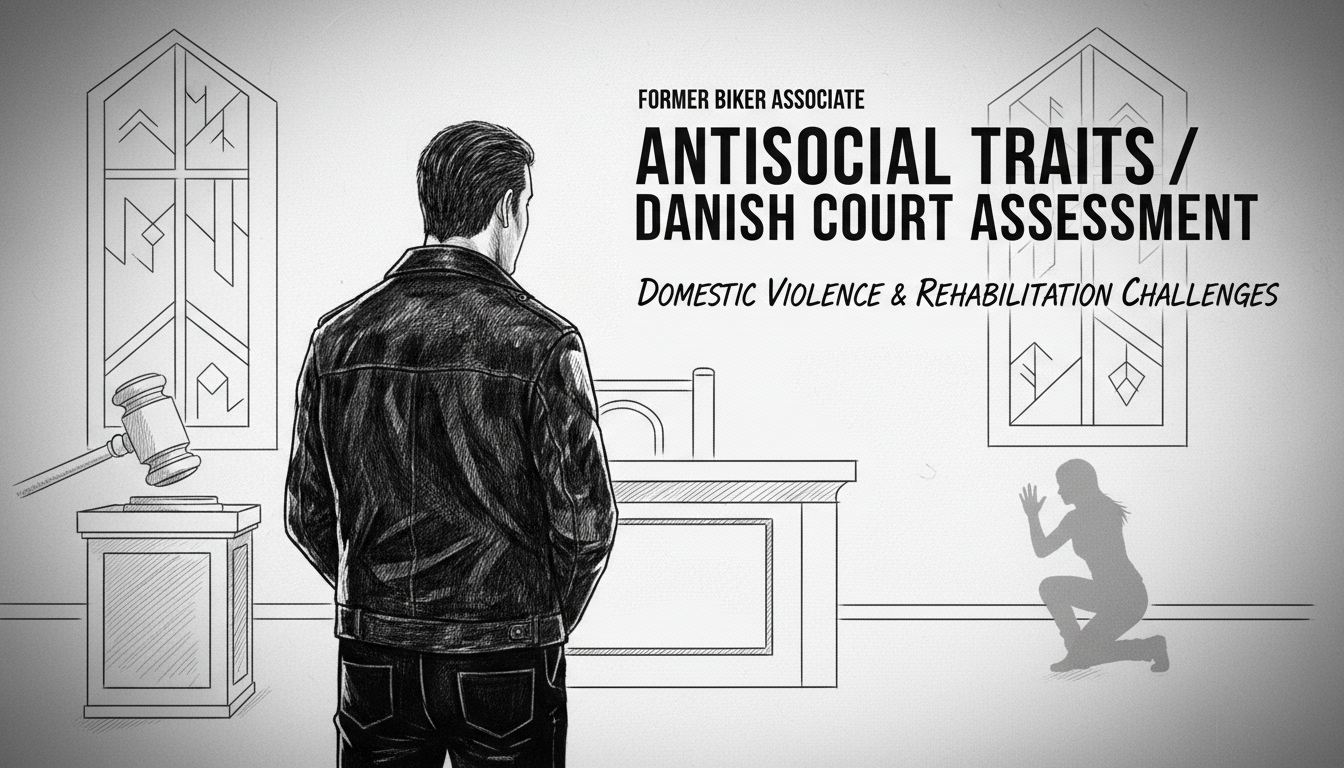A disturbing court case in northern Denmark reveals the complex challenges facing Danish society's approach to criminal rehabilitation. A former biker gang associate stands accused of multiple serious crimes against his ex-girlfriend, including three violent rapes and systematic stalking. Psychiatric evaluations presented to the court identified clear antisocial personality traits in the defendant. These findings highlight ongoing debates about Denmark's approach to repeat offenders and domestic violence prevention.
The court heard detailed accounts of threatening behavior that continued even while the defendant was already in custody. Audio recordings played in court captured death threats against the woman and her family. This case represents the difficult balance Danish authorities face between rehabilitation and public protection. The defendant acknowledges some violence and stalking but denies the rape allegations and psychological abuse charges.
Domestic violence cases like this one put Denmark's much-admired welfare system to the test. The country has invested heavily in social programs and integration initiatives, yet certain patterns of criminal behavior persist. Copenhagen integration specialists note that gang affiliations often complicate rehabilitation efforts. The Danish welfare system typically emphasizes rehabilitation over pure punishment, but cases involving repeated violent offenses challenge this approach.
Legal experts point to concerning statistics about recidivism among offenders with antisocial personality traits. Danish social policy aims to address root causes through education and social support, yet some individuals repeatedly bypass these safety nets. The court heard how this defendant had previous convictions for similar offenses against another former partner. This pattern suggests systemic failures in intervention strategies.
Community leaders in Hjørring express concern about local support systems for victims of domestic violence. Social centers across Danish municipalities work to provide safe havens and counseling services. Yet cases like this demonstrate how determined offenders can circumvent protective measures. The continuing threats made from prison particularly alarm victim advocacy groups.
Denmark immigration policy sometimes intersects with these criminal cases when offenders have foreign backgrounds, though this particular defendant appears to be Danish-born. The case nevertheless raises questions about how well different subcultures within Denmark integrate with societal norms. Biker gang culture represents one such challenge to mainstream Danish values.
The court proceedings also revealed investigative shortcomings. Defense lawyers discovered Snapchat conversations that police investigators had missed. This raises questions about law enforcement's technical capabilities in documenting digital evidence. Such oversights can critically impact prosecution outcomes in domestic violence cases.
As the trial continues, both prosecution and defense will present their final arguments. The court must weigh psychiatric assessments against the severity of the alleged crimes. Danish courts increasingly consider mental health evaluations when determining sentences, reflecting evolving understanding of criminal behavior. This case may influence how future domestic violence prosecutions approach defendants with diagnosed personality disorders.
The outcome will be closely watched by social policy experts and victim rights advocates alike. It represents another test case for Denmark's approach to balancing rehabilitation with public safety. The resolution may prompt renewed discussion about sentencing guidelines for repeat domestic violence offenders.

